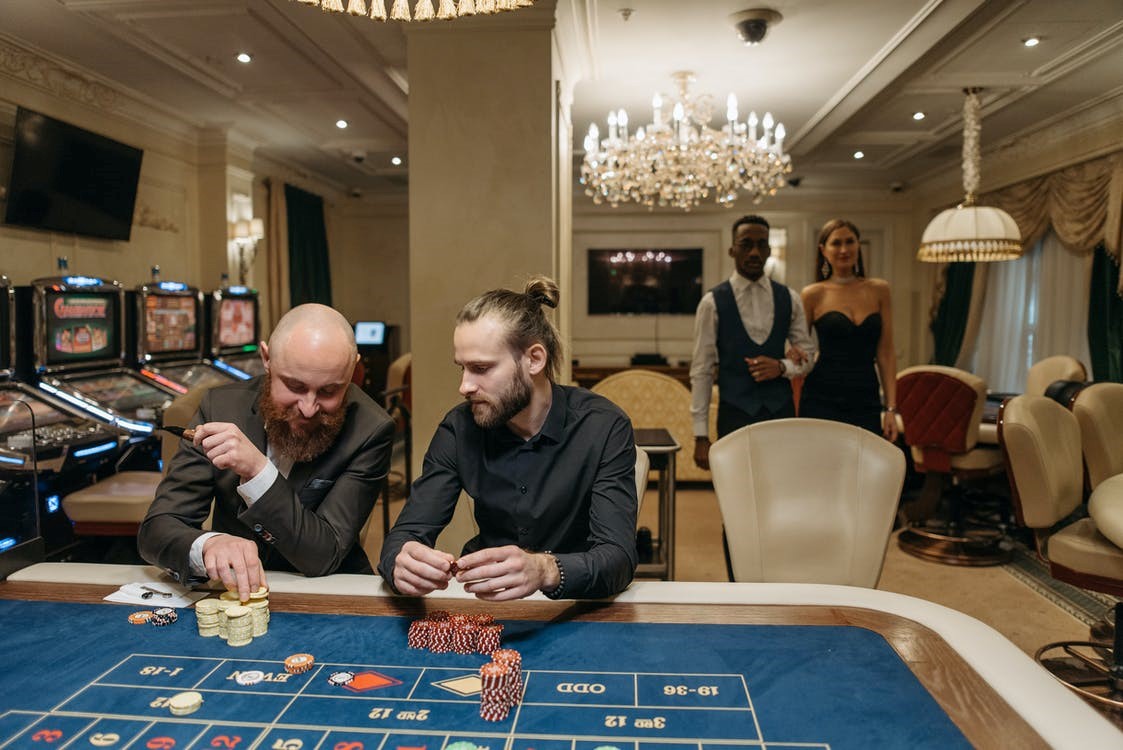
Gambling games have long captured the imagination of people around the world, becoming an integral part of both fun and culture. nohu90 From the shimmering lights of Nevada to the engaging experience of virtual casinos, these experiences evoke excitement, uncertainty, and sometimes even a sense of nostalgia. They are more than simply hobbies; they have woven themselves into the fabric of human experience, influencing everything from movies and songs to clothing and books.
The allure of casino games goes beyond the betting aspect, tapping into larger themes of luck, risk, and psychology. As players convene around a poker table or spin the wheel of fortune, they engage in an age-old ritual that echoes with our communal desire for adventure and instability. This fascination has led to the growth of many references in films, music, and video games, showcasing how deeply entrenched these activities are in popular culture. Whether it is the high-stakes tension of a traditional caper or the lively nightlife portrayed in recordings, casino games have created a substantial role that reflects our relationship with risk and reward.
Historical Impact of Casino Activities
Gambling games have played a key role in social contexts throughout the ages. Originating from old civilizations, forms of chance were often connected to rituals or gatherings. For instance, early forms of these activities can be linked back to historic Chinese and the Roman Empire, where die games and wagering on results were common pastimes. These activities not only functioned as entertainment but also as means of connecting people, facilitating relationships among people within communities.
As cultures evolved, so did the complexity and organization of casino games. The creation of formal casinos in the 17th century, particularly in the Italian region, marked a significant shift in how games were viewed and organized. With specific spaces for gambling, the casino became a social hub where patrons from various backgrounds convened. This change contributed to the validation of the industry, transforming it from a mere pastime into an organized industry that influenced economy and regulations.
The impact of casino games on mainstream culture cannot be understated. As they were popularized in books and movies, games such as poker and blackjack became icons of risk, chance, and tactics. Famous figures and stories have emerged around these games, illustrating societal views towards fortune, prosperity, and vice. This fascination with gambling activities has infiltrated various forms of entertainment, solidifying their status in the collective consciousness and linking them to broader cultural stories throughout the ages.
Depiction of Gambling Activities in Entertainment
Casino activities have long been a popular subject in different types of entertainment, reflecting both the thrill and complexities of the world of gambling. Movies such as Ocean’s 11 and Casino Royal portray figures who navigate intense situations, showcasing not only the attractiveness of the casino atmosphere but also the methods and decisions that come with playing popular games like poker and 21. These films often dramatize the exhilaration of winning and the potential repercussions of losing, encapsulating the dangers involved in betting.
TV programs have also explored the world of gambling activities, often integrating them into the storyline as a context for character arcs and conflict. Shows like Las Vegas depict the stories of casino workers and patrons, highlighting the dynamic, often chaotic energy of the gaming floor. Docuseries featuring intense gambling competitions further emphasize the fascination of gambling activities, drawing viewers into the excitement and strategy involved in each game. Through these portrayals, media not only amuses but also sparks conversations about luck, skill, and the essence of chance.
Digital games have increasingly integrated gambling activities into their design, allowing players to recreate the feeling of betting without monetary loss. Games within the realm of digital gaming often include online slot machines, online poker, and other popular casino games, creating an engaging environment that mirrors actual casino experiences. These virtual portrayals make gambling activities accessible to a broad demographic, appealing to both risk-takers and those who enjoy the rush of virtual experiences. As a result, the representation of gambling activities in media continues to shape public perception and cultural significance, highlighting their function in society and social context.
Effect of Gambling Activities on Society
Gambling activities have a significant effect on society, affecting multiple aspects of societal norms and social behavior. They often function as a venue for community engagement, where people gather to experience a shared experience. Casino trips with friends or visits to casinos become social activities that build connections and create shared moments. This communal aspect boosts the fun value of gambling activities, making them a favored choice for celebrations and leisure activities.
Moreover, gambling activities have been depicted in countless movies, television shows, and literature, shaping views and opinions towards gaming and betting. Icons like James Bond playing baccarat or the intense poker scenes in films have cemented these games in the shared imagination. This depiction often idealizes the lifestyle associated with gambling, drawing in new players and impacting trends in both fashion and behavior. These portrayals can ignite curiosity and lead to a more profound investigation of the intricacies of gaming.
However, there are also adverse consequences linked to the widespread appeal of casino games. The temptation of quick monetary gain can lead to gambling addiction and economic troubles for some people. Society must grapple with these issues, advocating for responsible gaming and education of the risks involved. Balancing the entertainment value of gambling activities with the risks is crucial to ensure that they continue to be a beneficial aspect of our cultural landscape.
